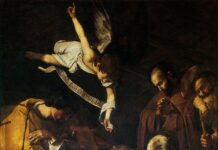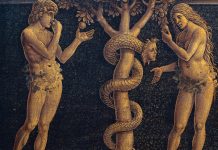As we celebrate the feast of the Papa Buono, the Good Pope as he was affectionately referred to, Pope St John XXIII, what comes to my mind and heart are the words uttered by Pope Francis during the homily of canonization of this together with the other Pope, St John Paul II, at St Peter’s Square, the Second Sunday of Easter (Divine Mercy Sunday), on April 27 2014: In convening the Council, Saint John XXIII showed an exquisite openness to the Holy Spirit. He let himself be led and he was for the Church a pastor, a servant-leader, guided by the Holy Spirit. This was his great service to the Church; for this reason I like to think of him as the pope of openness to the Holy Spirit.
His feast day happily coincides with his famous opening speech to the Council on October 11, 1962 in Saint Peter’s basilica. To do great justice with Pope Roncalli the best way to really appreciate his prophetic vision and the remarkable way in which the Holy Spirit used him for the greater good of the Church and humanity at large is to see some powerful quotes from this unforgettable speech.
In this historical address, Pope Roncalli wisely called the Council for the purpose of replying to what he referred to as the errors, needs and opportunities” of the 1960s world. While addressing the issue of the Church in the Council he said: The present Council is a special, worldwide manifestation by the Church of her teaching office, exercised in taking account of the errors, needs and opportunities of our day. Moreover, when talking about the Right way to suppress error, Pope John XXIII said: The Church has always opposed these errors, and often condemned them with the utmost severity. Today, however, Christ’s Bride prefers the balm of mercy to the arm of severity. She believes that present needs are best served by explaining more fully the purport of her doctrines, rather than by publishing condemnations.
Is the Church nowadays explaining the errors, needs and opportunities of our day? Is she doing that with condemnation or is she applying the balm of mercy? In her merciful approach is the Church getting more followers to Christ or is she losing more and more of Christ’s flock?
The second point of reflection deals with the problems and life difficulties which we all share as human beings. When he spoke about being with Christ or against him the Pope said: Certain it is that the critical issues, the thorny problems that wait upon men’s solution, have remained the same for almost 20 centuries. And why? Because the whole of history and of life hinges on the Person of Jesus Christ. Either men anchor themselves on him and his Church, and thus enjoy the blessings of light and joy, right order and peace; or they live their lives apart from him; many positively oppose him and deliberately exclude themselves from the Church. The result can only be confusion in their lives, bitterness in their relations with one another, and the savage threat of war.
What are we doing, so that people find their lives in the Person of Jesus Christ? In what way are we promoting him as presented to us by his Church in order that people would enjoy his infinite blessings of light and joy, right order and peace? Are we reaching to people who are apart from him, opposing him and willingly exclude themselves from him and his Church? Are we being like Good Samaritans who, by your word and deed, help the confused, the embittered and those who fall victims of their own anger?
In that beautiful speech John XXIII spelled out the need of Catholicism in the light of the serious ambiguities of modern life. He said: [T]he function of every ecumenical council has always been to make a solemn proclamation of the union that exists between Christ and his Church; to diffuse the light of truth; to give right guidance to men both as individuals and as members of a family and a society; to evoke and strengthen their spiritual resources; and to set their minds continually on those higher values which are genuine and unfailing.
Is the Church being faithful to this union that exists between her and Christ? Is she diffusing the light of truth, giving the appropriate guidance to people and individuals that they are members of the same fraternity of men and women? How is the Church helping you and me to draw from our authentic spiritual resources? Is she really challenging us to put our minds on values that resist time and change?
Another salient point Pope St John XXIII made during this very important address at the beginning of the Council is that the same Council was not a rejection of past tradition. He said: The voice of the past is both spirited and heartening. We remember with joy those early popes and their more recent successors to whom we owe so much. … Their uninterrupted witness, so zealously given, proclaims the triumph of Christ’s Church, that divine and human society which derives from its divine Redeemer its title, its gifts of grace, its whole dynamic force.
Hence, for John XXIII the Council was a genuine attempt to proclaim Christ’s truth with a new ‘energy’. He said: We have every confidence that the Church, in the light of this council, will gain in spiritual riches. New sources of energy will be opened to her, enabling her to face the future without fear. By introducing timely changes and a prudent system of mutual cooperation, we intend that the Church shall really succeed in bringing men, families and nations to the appreciation of supernatural values.
In what way we Christians are we sharing our faith with others and cooperating with other people, families and countries towards the mutual appreciation of the values that last?
Faced by this exquisite openness to the Holy Spirit let us pray to Pope St John XXIII:
Dear Pope John, Your simplicity and meekness carried the scent of God and sparked in people’s hearts the desire for goodness. You spoke often of the beauty of the family gathered around the table to share bread and faith: pray for us that once again true families would live in our homes. With outstretched hands you sowed hope, and you taught us to listen for God’s footsteps as he prepares a new humanity: help us have a healthy optimism of defeating evil with good.
You loved the world with its light and darkness, and you believed that peace is possible: help us be instruments of peace at home and in our communities.
With paternal gentleness you gave all children a caress: you moved the world and reminded us that hands have been given to us not for striking, but for embracing and drying tears.
Pray for us so that we do not limit ourselves to cursing the darkness but that we bring the light, bringing Jesus everywhere and always praying to Mary. Amen.











